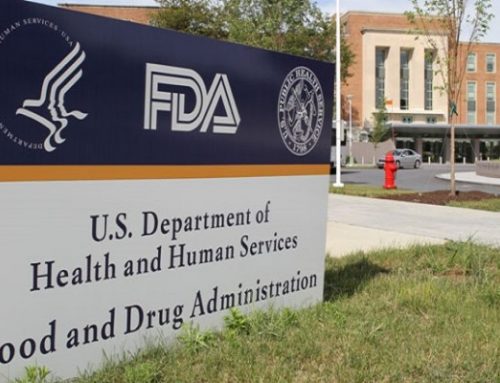How do you combat bacterial resistance, which the World Health Organization (WHO) calls “one of the top global public health and development threats” facing humans?
One way to fix the problem is to develop drugs that bacteria can’t build resistance to. In a world where research on new antibiotics is not given a top priority, the University of Illinois Chicago (UIC) researchers came up with a novel idea that might make bacterial resistance almost impossible.
What exactly did they do at the UIC?
 They decided to combine one family of antibiotics, the macrolides, which are known to be mitochondrially toxic (1), and combine them with the most mitochondrially toxic antibiotics, the quinolones (2), to create the Macrolones.
They decided to combine one family of antibiotics, the macrolides, which are known to be mitochondrially toxic (1), and combine them with the most mitochondrially toxic antibiotics, the quinolones (2), to create the Macrolones.
The Macrolones are synthetic macrolide derivatives with a quinolone side chain, structurally similar to DNA topoisomerase-targeting fluoroquinolones (3).
The researchers describe how the new class of drugs can disrupt bacterial cell function in infectious diseases. First, they can kill protein production, just like macrolides, a type of antibiotics that are currently in use. Second, the macrolones can also interfere with the DNA structure of bacteria (DNA gyrase) in a similar way current fluoroquinolones act. That’s another type of widely used antibiotic.
Over the years I have repeatedly warned against future drugs being developed that were either based on the fluoroquinolones or combined with the fluoroquinolones (4).
with the fluoroquinolones (4).
Researchers have confirmed time and time again that fluoroquinolones are the modern-day antibiotic equivalent of a really cool erector set. They fully admit that the quinolone’s “chemical synthesis is flexible and can be easily adapted to prepare new congeners with rationally devised structures”. You can read all about it here in the published article “Nonclassical Biological Activities of Quinolone Derivatives” (5).
The paper describes how the quinolone’s chemical synthesis is flexible and can be easily adapted to prepare new compounds and it is considered ideal for effective drug design. From the above paper “…which makes quinolones an endless source of hope and enables further development of new clinically useful drugs.”
Despite the numerous papers, articles, and patient stories that point to the toxicity of the fluoroquinolones, it is my opinion that most scientists who work in drug development do not believe that they are very toxic. On the contrary, like a kid with who received a cool new erector set for Christmas, they see endless possibilities in synthesizing new compounds from the quinolone drug scaffold.
My research has proven to me that there is something very inherently wrong with the quinoline pharmacophore. That foundation on which new drugs are built holds a secret that is hidden in plain sight. This secret is the fluoroquinolone’s toxicity whose insidious tentacles spread throughout society causing untold worldwide health problems that routinely evade detection or documentation by separating cause and effect.
Please read this article I wrote to fully appreciate the fluoroquinolone’s long-term impact on our society:
Until drug researchers fully understand and connect the fluoroquinolones to all the damage they cause, from post-viral syndromes to CFS and Fibromyalgia, from Gulf War to ALS and Parkinson’s, all avenues of development will carry with them the underlying risk of horrific adverse events for those unlucky enough to fall victim.
Do you know of a loved one, a friend, a co-worker, or someone else who suffers from a diagnosis of mysterious origin, such as peripheral neuropathy with an unidentified cause? If so, ask them to do some detective work to find out if they have used Fluoroquinolones in their past, not necessarily their immediate past. Tell them that the Fluoroquinolones are often given during surgery, often without the patient’s knowledge.
If you are faced with potential antibiotic use, for yourself or a loved one, please become informed as to your available choices. If antibiotic use is necessary, there are generally safer alternatives than the Fluoroquinolones.
If and when these Macrolones do come to the market please stay informed, especially now that they are incorporating the quinolones into other medications. And, as always, please discuss all medical concerns openly and honestly with your doctor.
Sources:
- https://pubmed.ncbi.nlm.nih.gov/26068526/
- https://www.ncbi.nlm.nih.gov/pmc/articles/PMC6182158/
- https://www.nature.com/articles/s41589-024-01685-3
- https://www.myquinstory.info/havent-fluoroquinolones-taken-off-market/
- https://journals.library.ualberta.ca/jpps/index.php/jpps/article/view/12211/9486
- https://www.myquinstory.info/the-fluoroquinolones-inconvenient-truth/





Thank you for your service.